Why Do My Dogs Smell Like Fish?
Dogs can sometimes have a noticeable odor, which might come from different sources. While some dogs have a certain smell due to their nature, others may have an unusual scent because of the food they eat or something in their environment. Occasionally, this can indicate a more serious health problem requiring a vet’s attention.
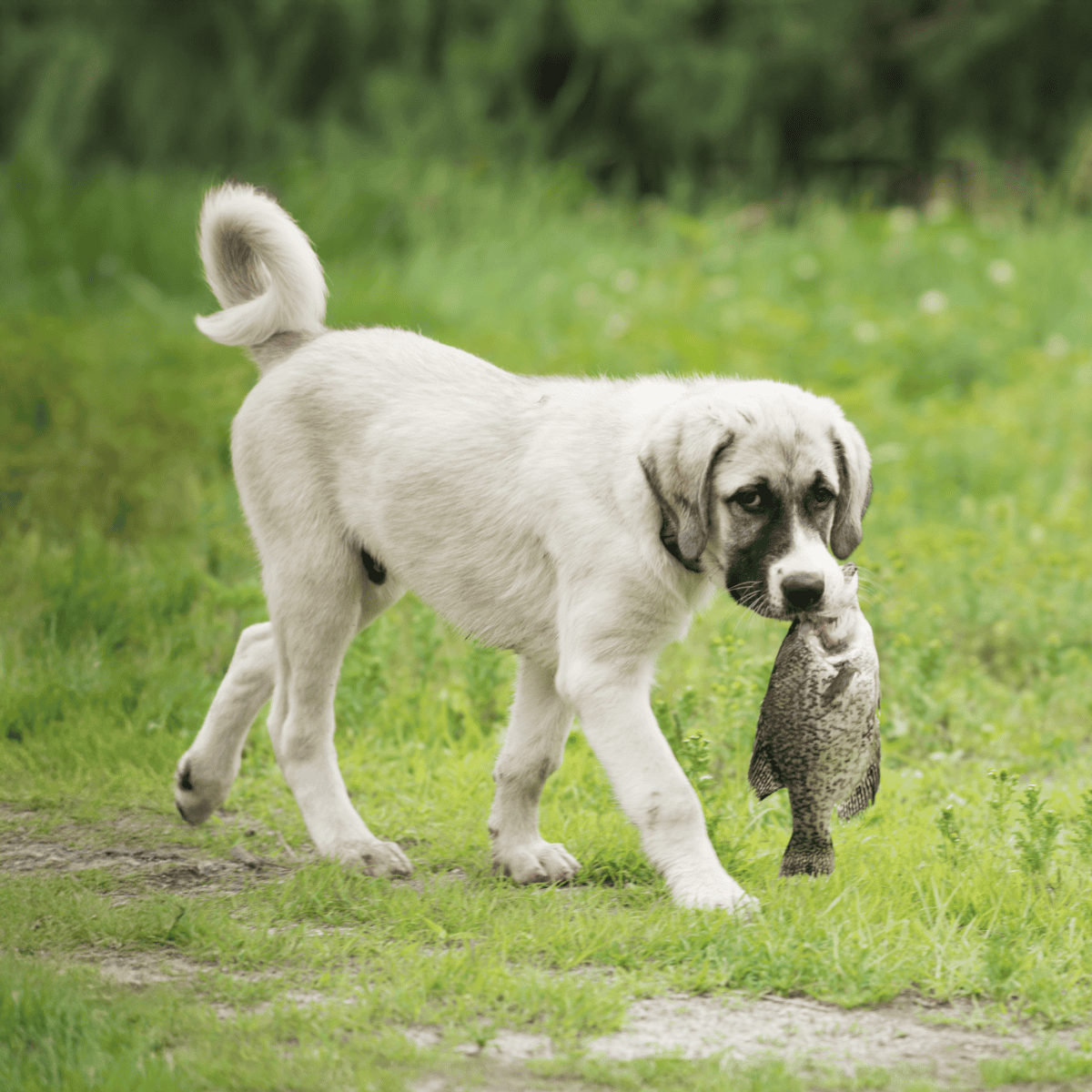
One specific concern for many dog owners is when their pet has a fishy smell. This scent is often not normal and could be a sign that veterinary care is needed. Understanding the cause of these odors is important for keeping dogs healthy and happy.
Understanding Your Dog’s Scent
Dogs use their sense of smell for many things, like exploring the world. A dog’s unique odor can be influenced by different factors. Two of the most important are the science behind their scent and anal glands.
The Science of Canine Odor
Dogs have a strong sense of smell. They have millions of scent receptors. These let them pick up various scents. The smell that dogs have comes from natural oils in their skin and fur. These oils can carry different smells.
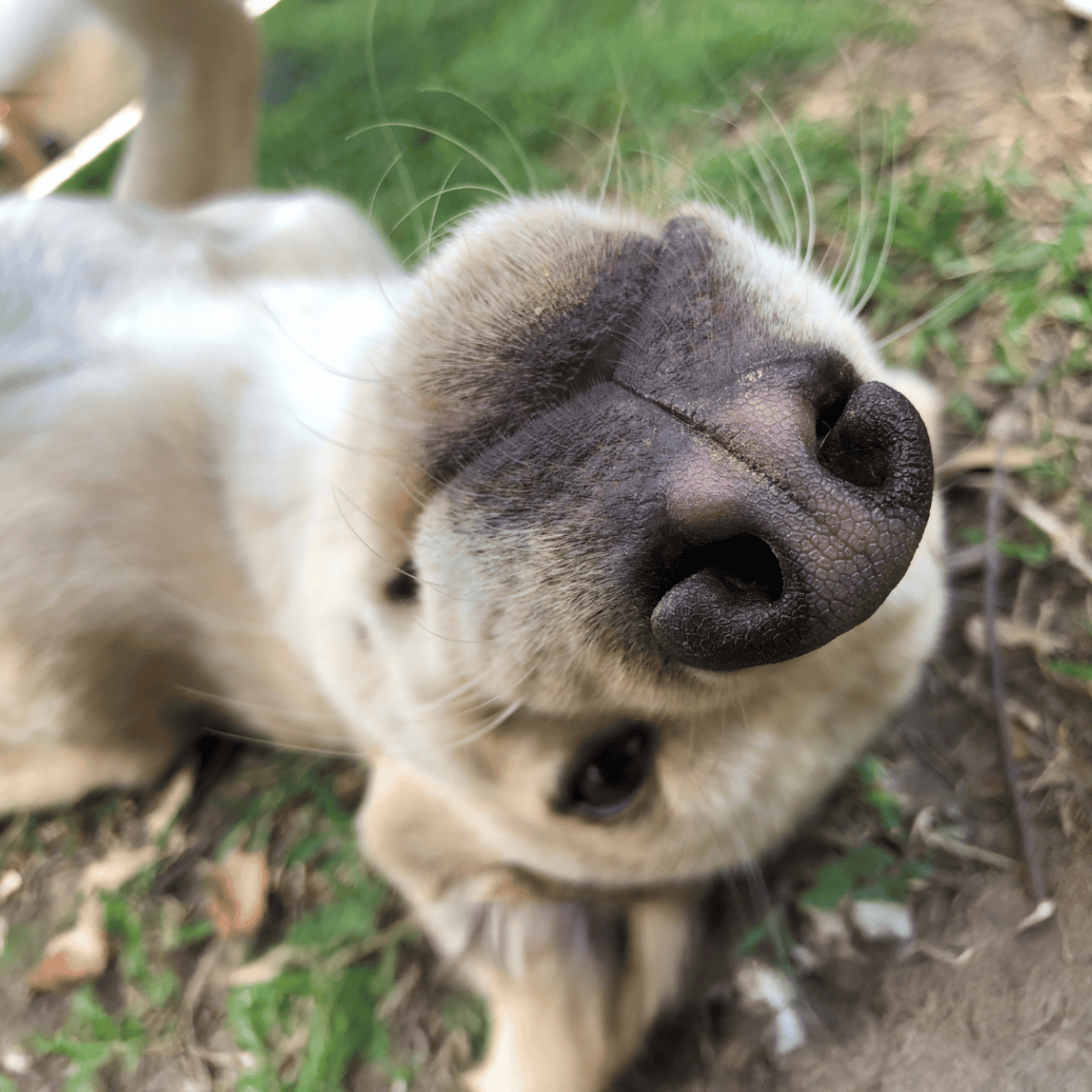
Bacteria can also play a part in how they smell. Bacteria grow in damp areas. This makes a stronger scent. To manage this, regular grooming is key.
Anal Glands and Their Secretions
Anal glands are small sacs near a dog’s anus. They hold a strong-smelling fluid. This fluid is used to mark territory or interact socially. Sometimes, they don’t empty as they should and this can make a fishy smell.
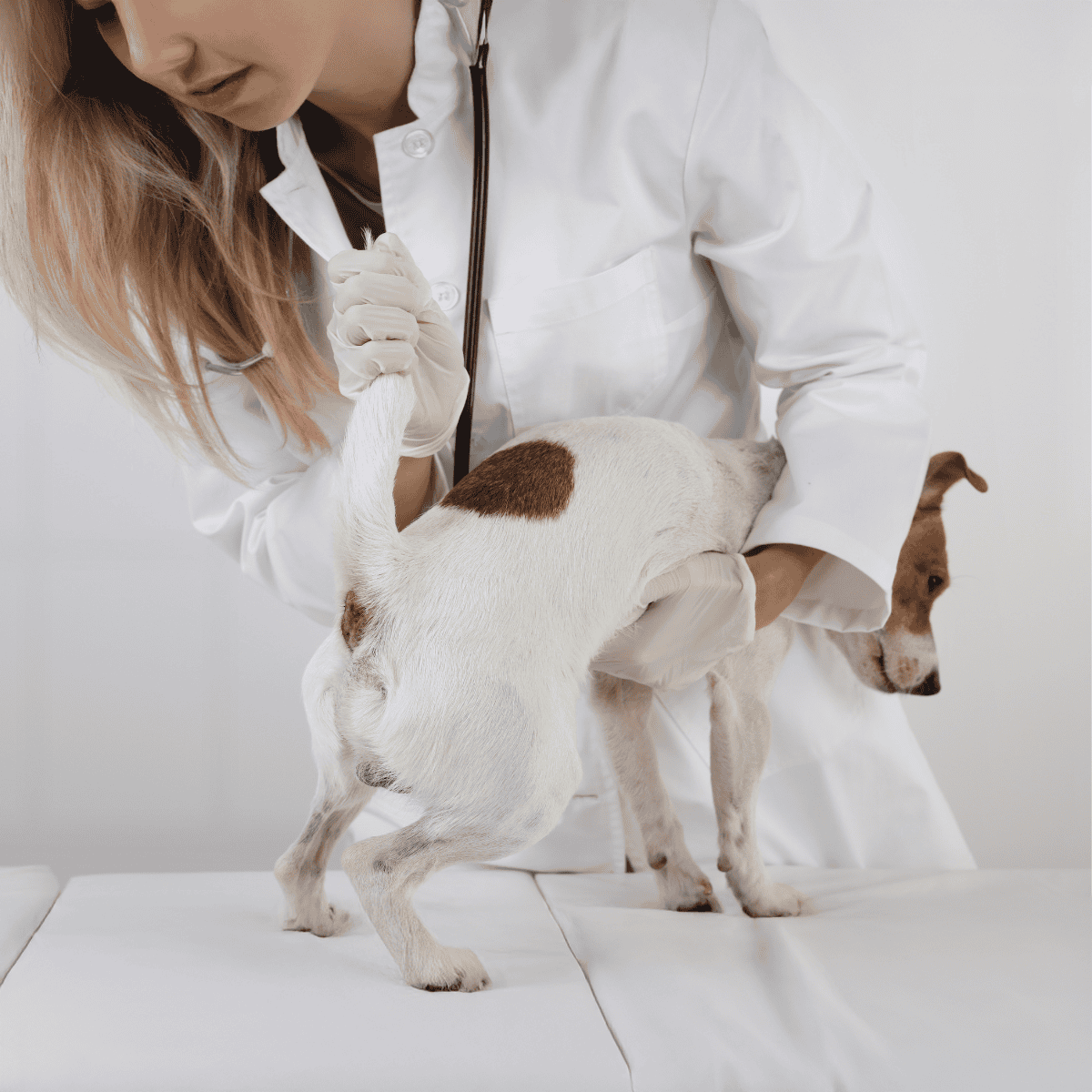
When the glands are full, a vet or groomer can help. They can empty the glands, reducing the smell. This can prevent discomfort and possible infections. Regular check-ups are essential to keep your dog healthy and smelling fresh.
Why Do Dogs Emit a Fishy Smell?
Dogs can sometimes smell like fish for several reasons. The most common causes include impacted anal glands, yeast infections, and poor hygiene. Understanding these causes can help address the problem effectively.
Anal Glands and Rear Features
Dogs have special glands near their rear end that release a strong, fishy scent. This happens normally when they go to the bathroom. If the glands become too full or infected, the smell becomes more noticeable, often requiring attention from a vet. Some signs include scooting, licking the area, difficulty when pooping, reluctance to sit, swelling around the anus.
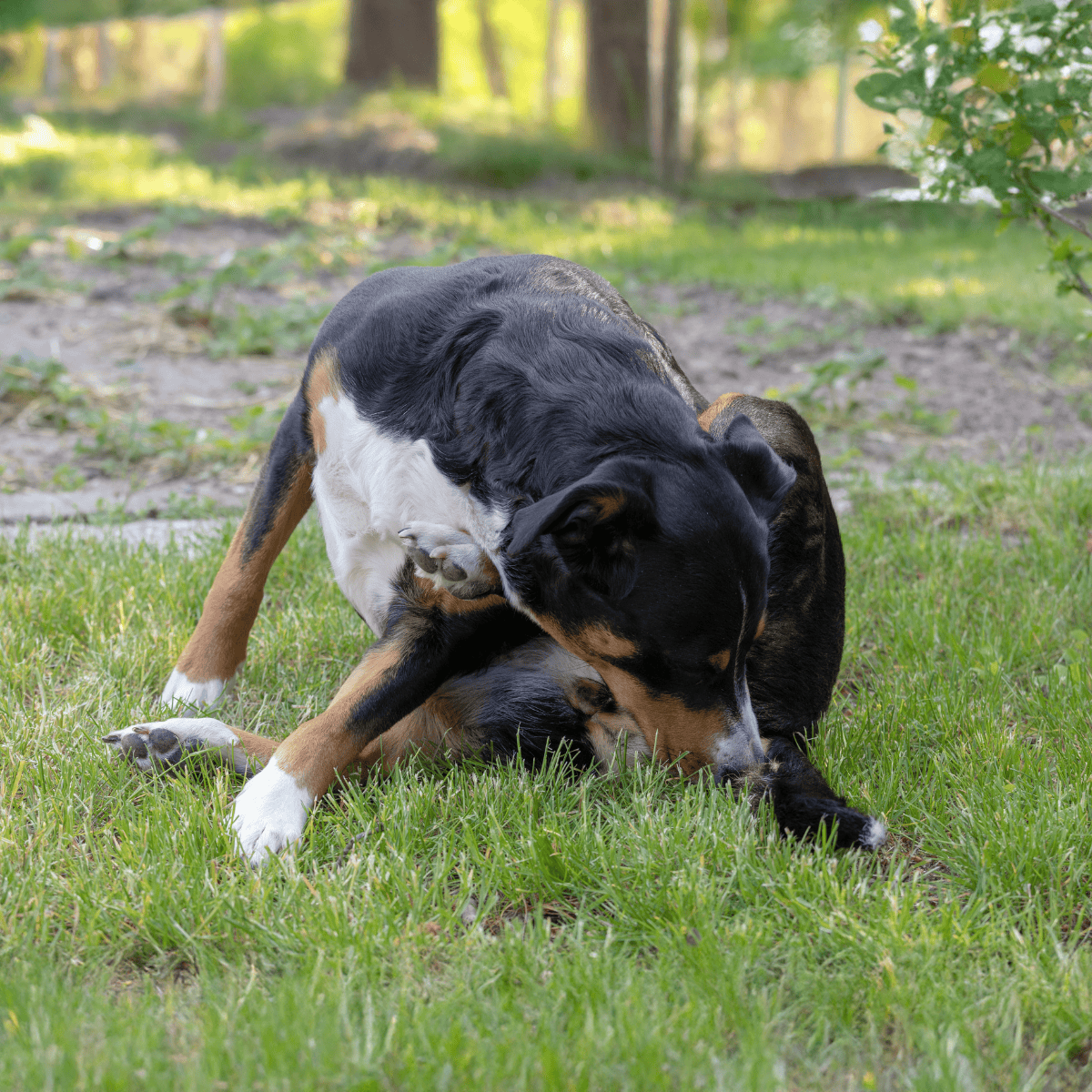
Sometimes, when dogs are scared, they may unexpectedly release this smell, which is normal. This is part of their natural stress response, alongside trembling, whining, or hiding.
Problems with Urination
Issues with urination can cause dogs, especially females, to have a fishy odor due to bacterial infections in the bladder or kidneys. Additional symptoms are drinking too much water, increased urination, accidental urination indoors, strained attempts to urinate, changes in urine color.
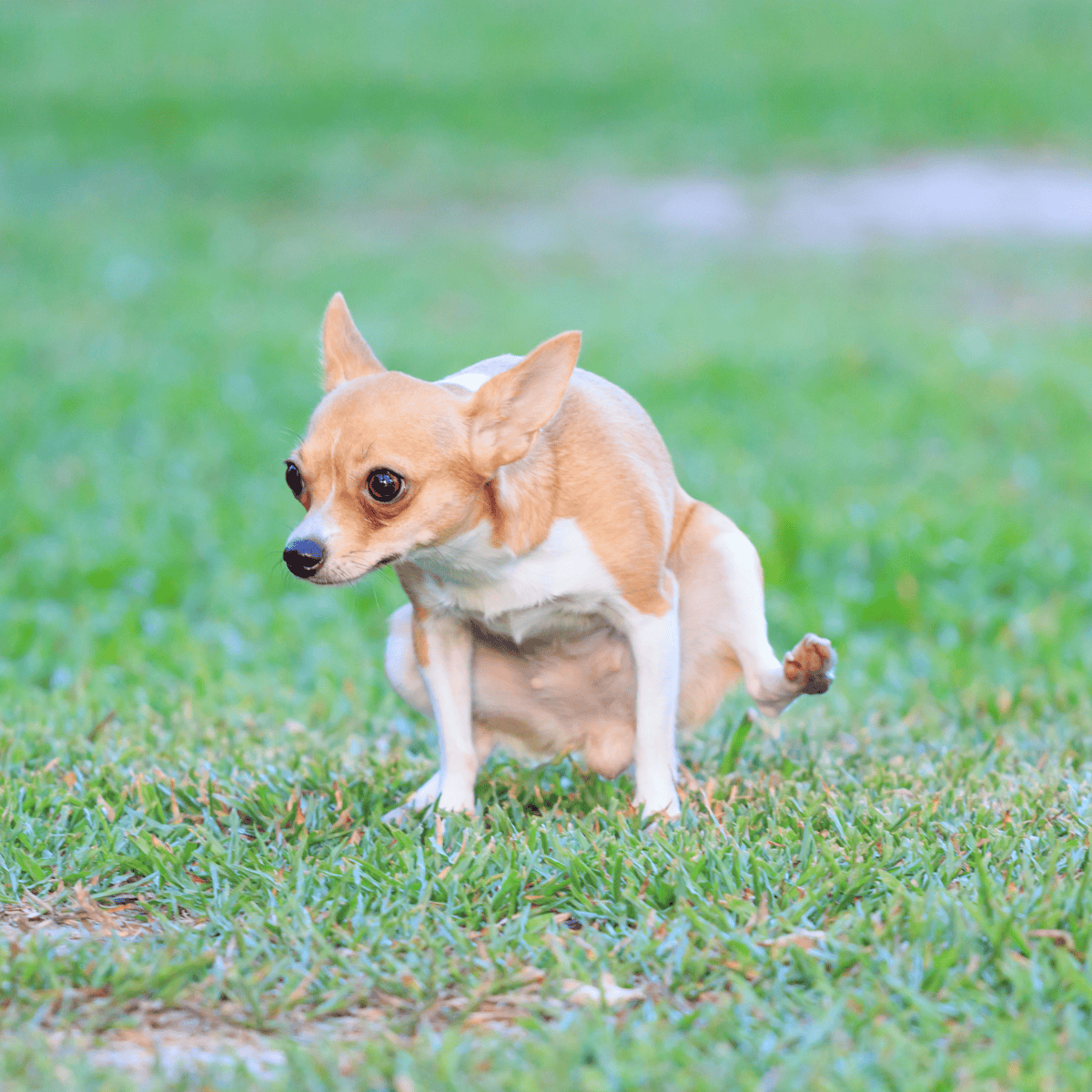
Serious kidney infections might also make a dog feel tired, experience vomiting, or lose appetite. Vagina-related problems, often caused by bacteria or yeast, can develop in female dogs of any age. Some breeds are more prone due to their anatomy.
Lastly, a severe problem, pyometra, can develop, which is a serious infection due to hormonal changes in unspayed female dogs.
Dental Health Issues
If a dog’s breath has a fishy aroma, dental issues may be the cause. This smell is often due to bacteria in the mouth. Dental problems include visible tartar, dropping food, excessive drooling, touching or scratching the face, swelling around the mouth.
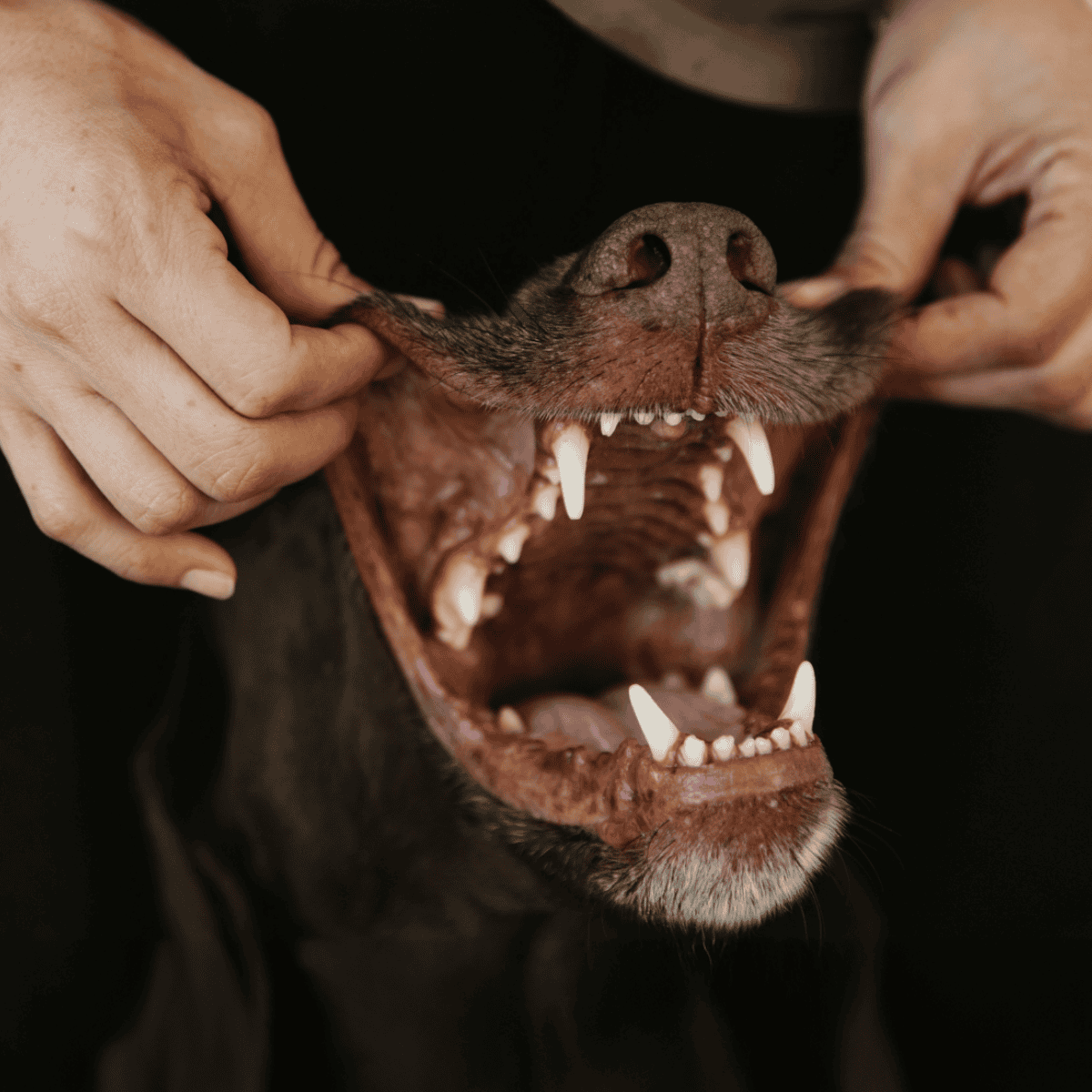
Some breeds, like Yorkies, Chihuahuas, and Dachshunds, are more likely to suffer from these types of issues. After a dental checkup and cleaning, vets may suggest special diets or oral hygiene products to manage and reduce odors.
Skin Condition Effects
Yeast infections in dogs’ skin commonly cause a fishy smell. These infections often hit parts like paws, ears, and skin folds. Signs to watch for include excessive scratching or licking, redness or sores, hair loss.
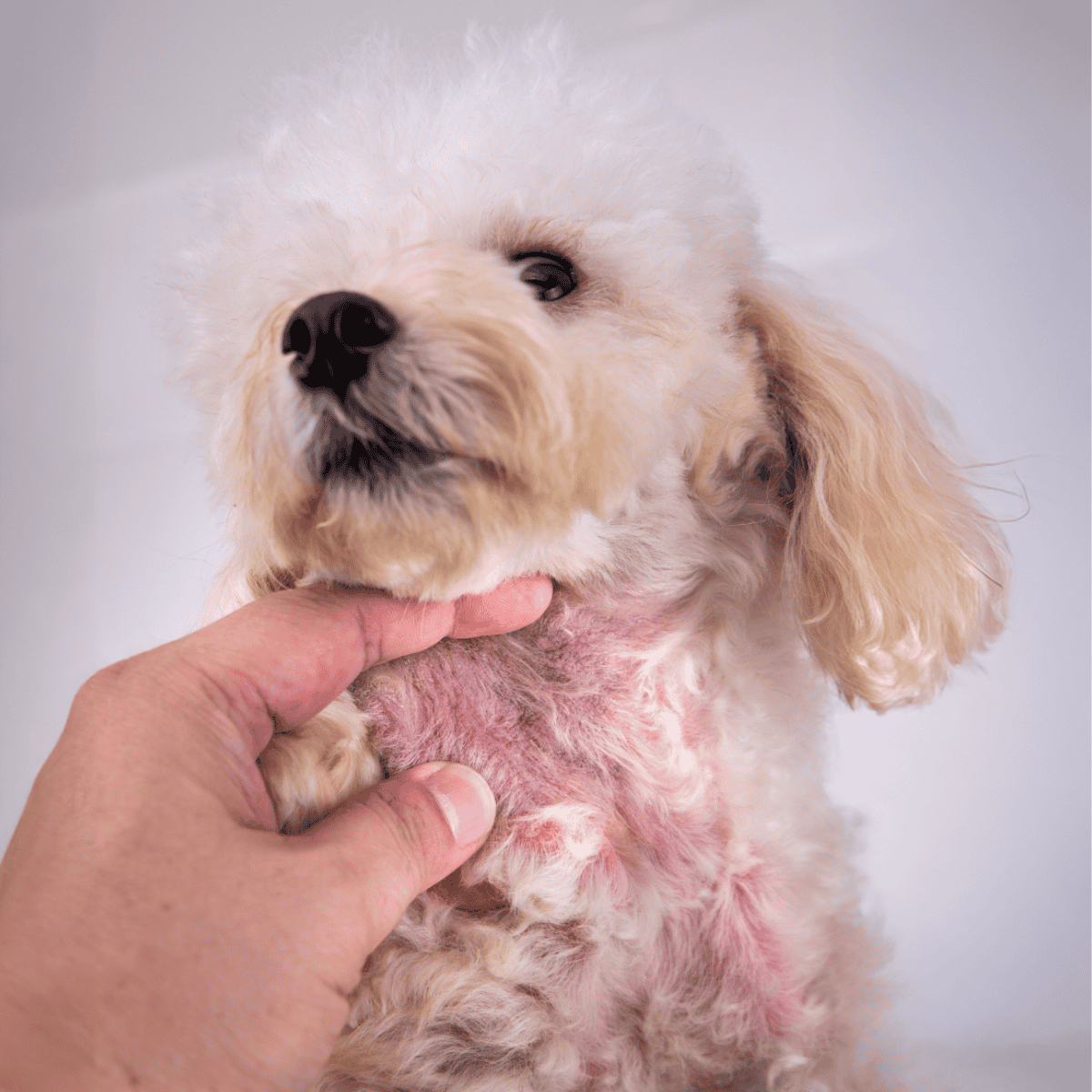
Treatment with antifungal medications can offer relief. If you notice these signs, a vet’s evaluation is recommended to check for possible allergies or yeast-related issues.
Poor Hygiene
Sometimes, the fishy scent is simply due to poor hygiene. Dirt and bacteria can accumulate on a dog’s coat and skin if not cleaned regularly.

Regular baths and grooming are essential to prevent this buildup. Using dog-friendly shampoos and brushing their fur helps keep them clean and odor-free.
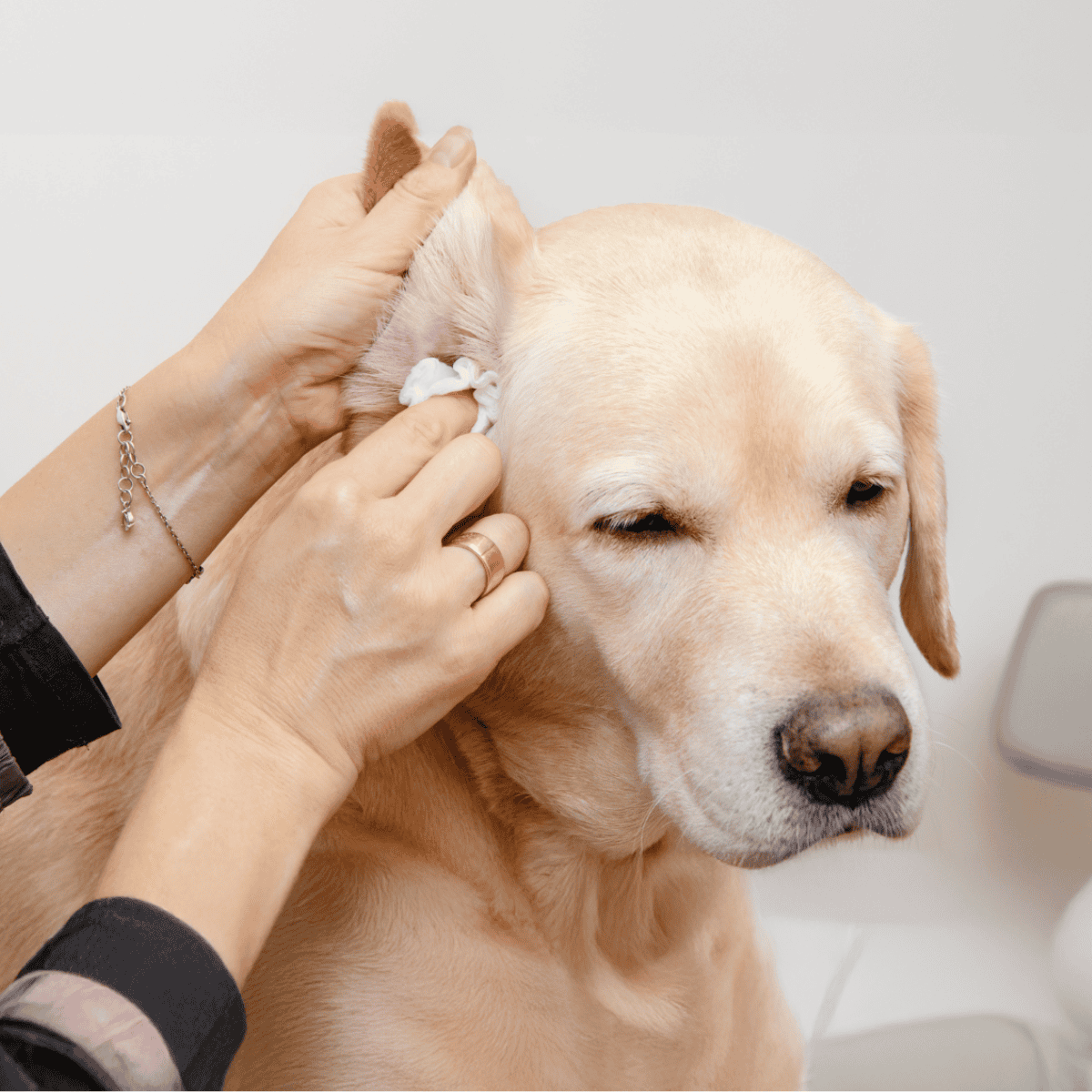
Owners should also pay attention to their dog’s ears, teeth, and paws, as these areas can harbor bacteria that contribute to bad smells. Proper hygiene helps maintain good health and a pleasant-smelling pet.
Enjoying this read?
We publish this content for free to generate interest in our Premium members' area. By subscribing, you can ask the writer any questions related to pet care and this article, get access to 100+ Premium Pet Care Guides and go Ad-Free with DogFix Premium for $2.99.
Preventative Measures
Taking steps like grooming, feeding a balanced diet, and scheduling health checks helps keep dogs smelling fresh. These actions reduce the risk of fishy odors by maintaining their overall health.
Regular Grooming
Regular grooming helps remove dirt and debris that can cause bad odors in dogs. Brushing your dog’s coat daily is important to reduce shedding and keep their fur clean. Bathing them every 4-6 weeks with a dog-friendly shampoo can also prevent smells.
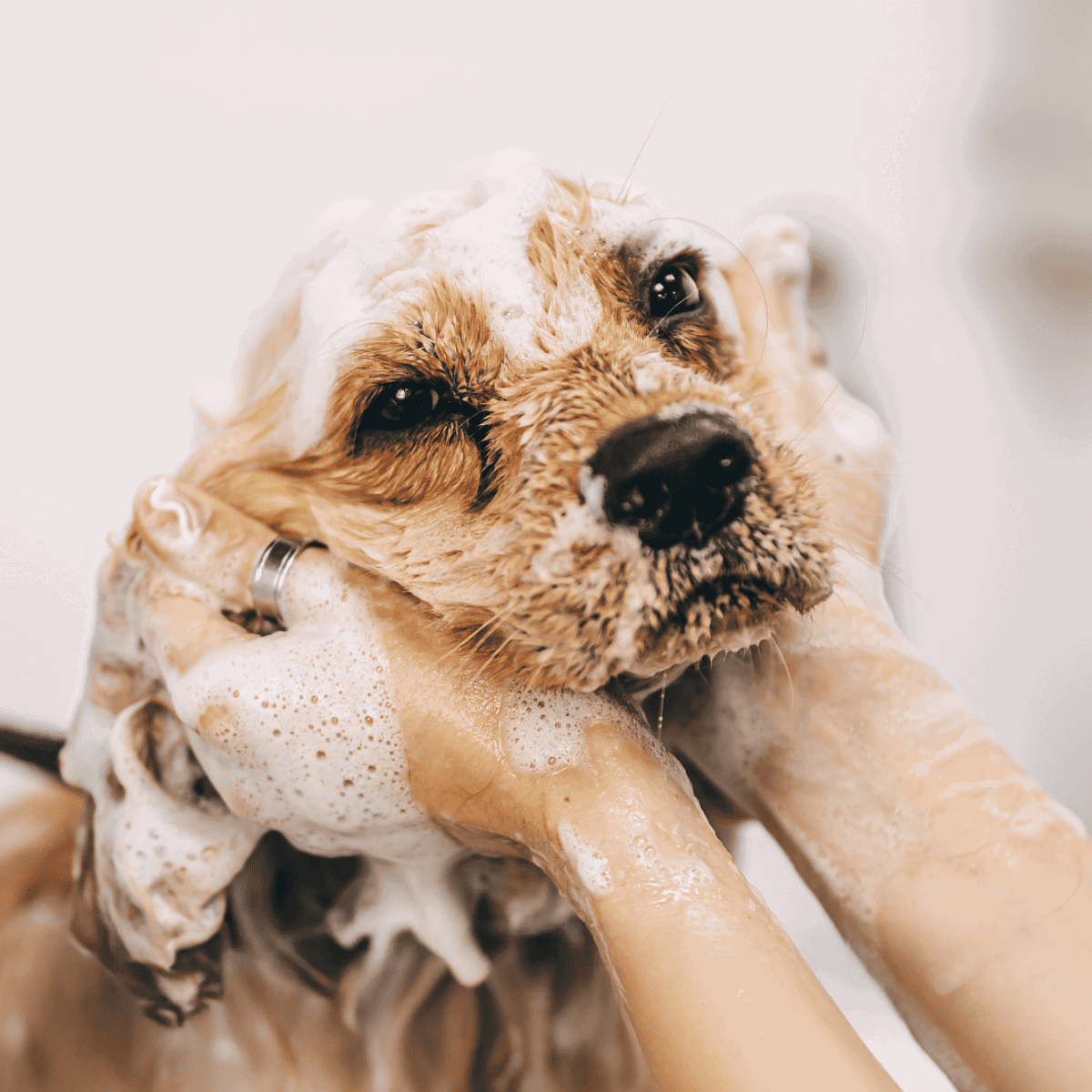
Cleaning your dog’s ears is essential since wax buildup can contribute to unpleasant odors. Use a vet-recommended ear cleaner. Also, make sure to check and clean their teeth to avoid oral health issues that can cause odor.
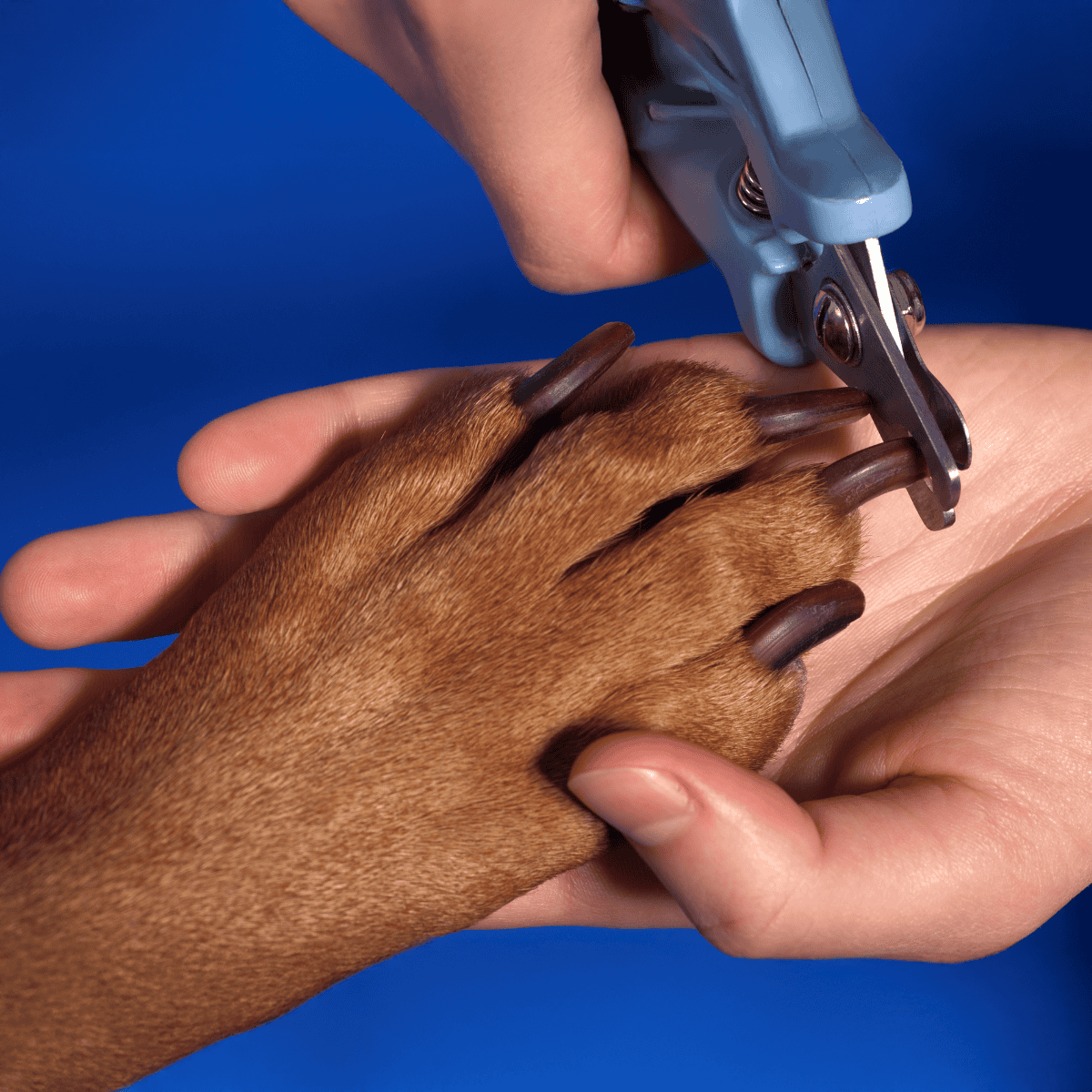
Keeping nails trimmed can prevent dirt buildup and infection, contributing to overall hygiene. Regular grooming ensures your dog not only looks good but smells good too.
Appropriate Diet
An appropriate diet plays a vital role in your dog’s overall smell. High-quality dog food with balanced nutrients helps in keeping the coat shiny and skin healthy. When dogs eat a balanced diet, it reduces the likelihood of skin issues and bad breath, which can contribute to odors.
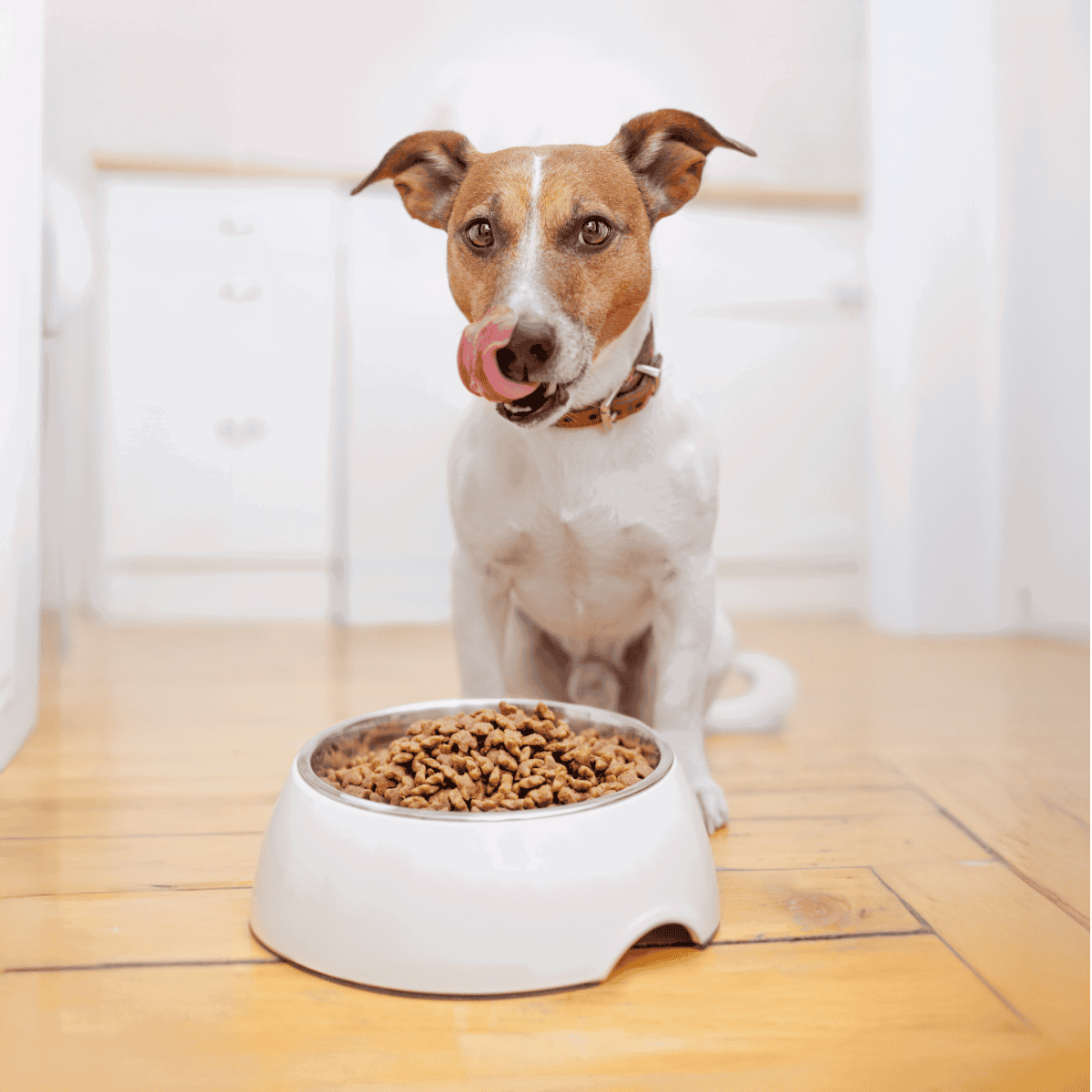
Include foods rich in omega-3 and omega-6 fatty acids, found in fish oils and flaxseed. These help maintain healthy skin and coat. Avoid excess fillers or artificial ingredients in dog food, which can trigger allergies or digestive problems.
Adding herbs like parsley to dog food can assist in freshening breath. Make sure your pet has constant access to fresh water to support digestion and overall hygiene.
Routine Health Checks
Routine health checks are key to preventing health issues that may cause odor. Regular vet visits allow early detection of problems like infections or anal gland issues. When detected early, these health concerns can be treated before they cause major issues or unpleasant odors.
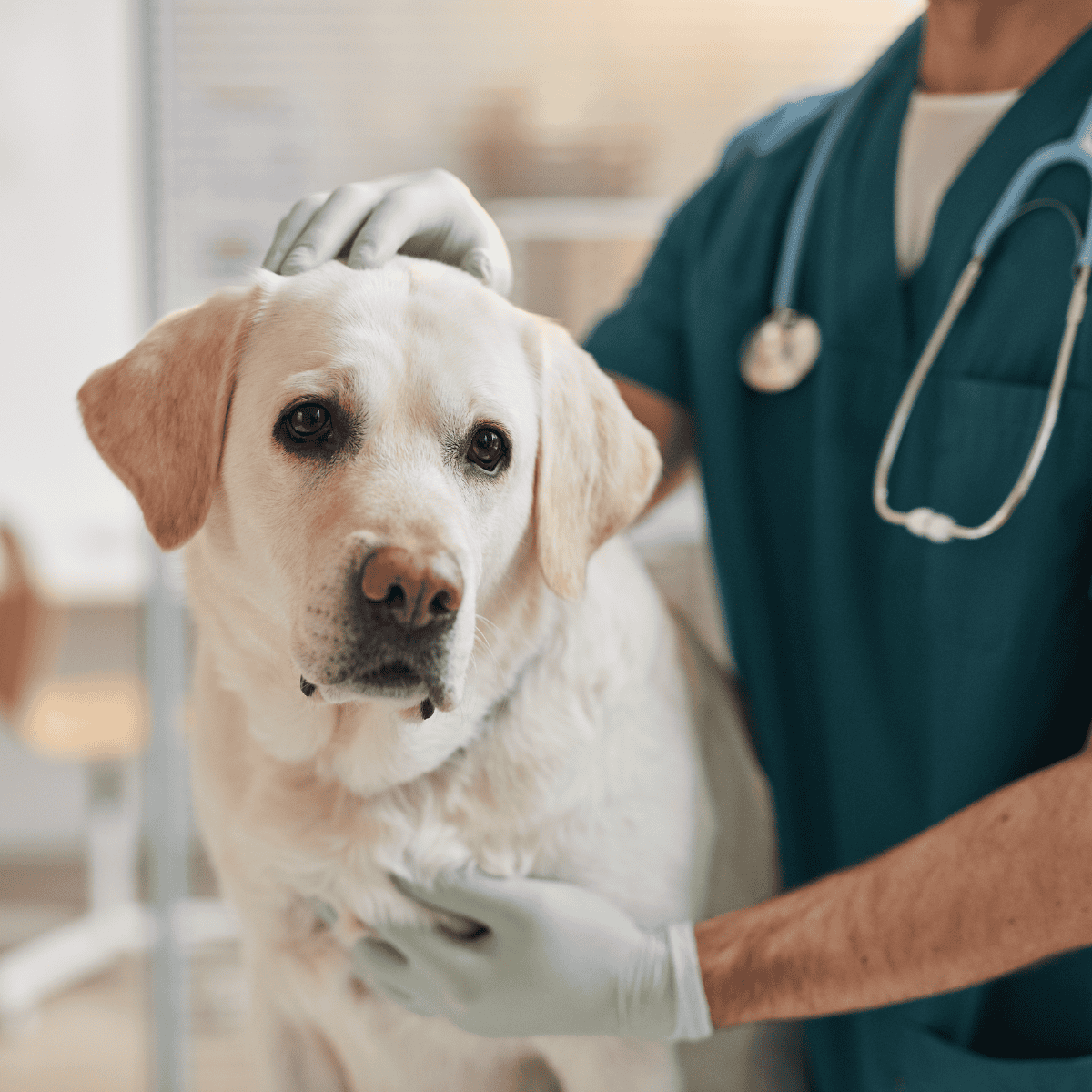
During visits, veterinarians will often examine your dog’s ears, teeth, skin, and general health. It is important to follow their guidance on dental care and any needed medical treatments.
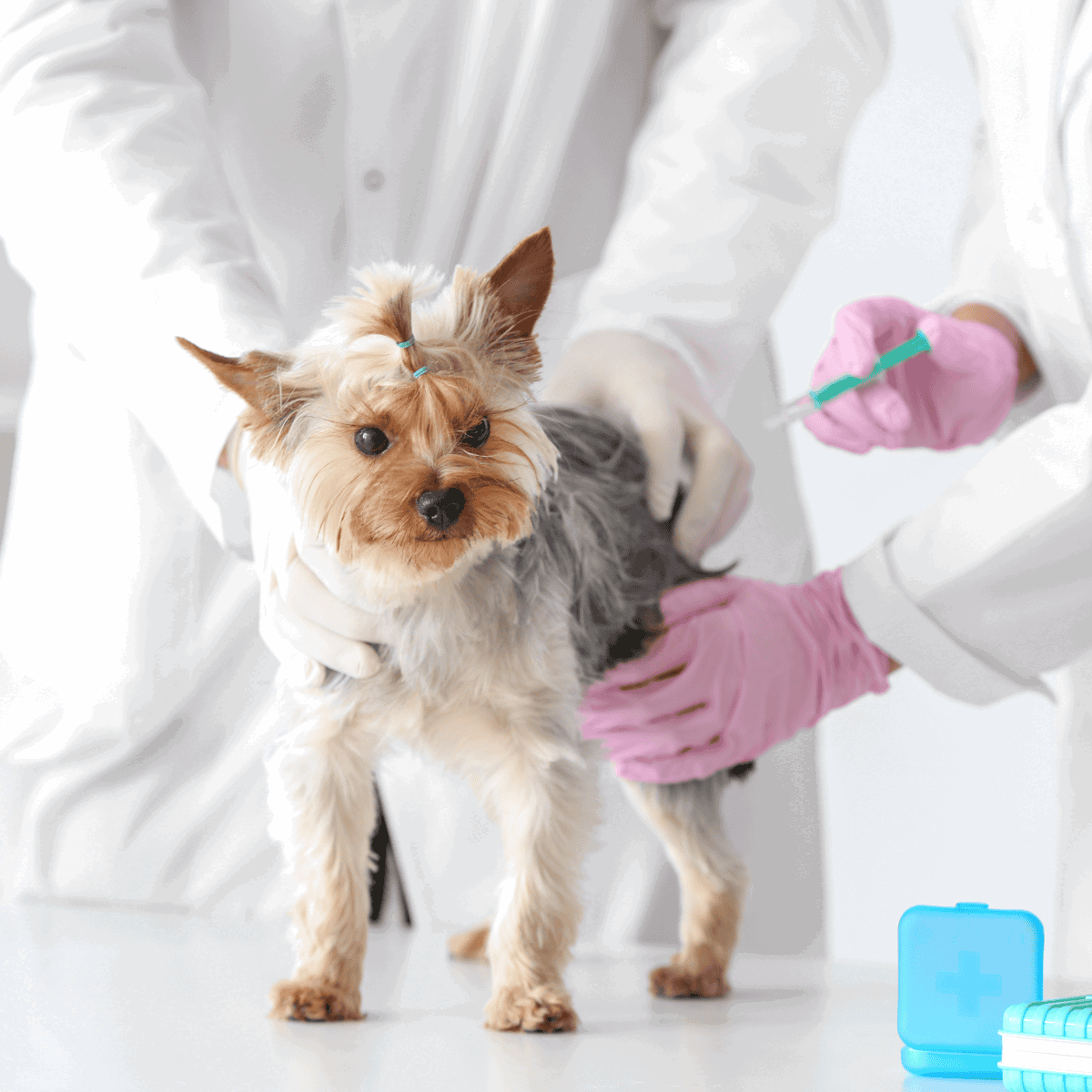
Keep vaccination schedules up to date, as certain parasites or illnesses can contribute to odor. Routine checks are a preventive measure that ensures any potential health issue will be caught early.
Bathing and Cleaning
Regular bathing and cleaning can help reduce the fishy odor from dogs. Selecting appropriate products and using effective bathing techniques are key to keeping your dog fresh and clean.
Choosing the Right Products
When picking a shampoo, look for one that’s gentle on a dog’s skin. Hypoallergenic products are good for dogs with sensitive skin. Additionally, select shampoos with natural ingredients which can be gentler on a dog’s coat.
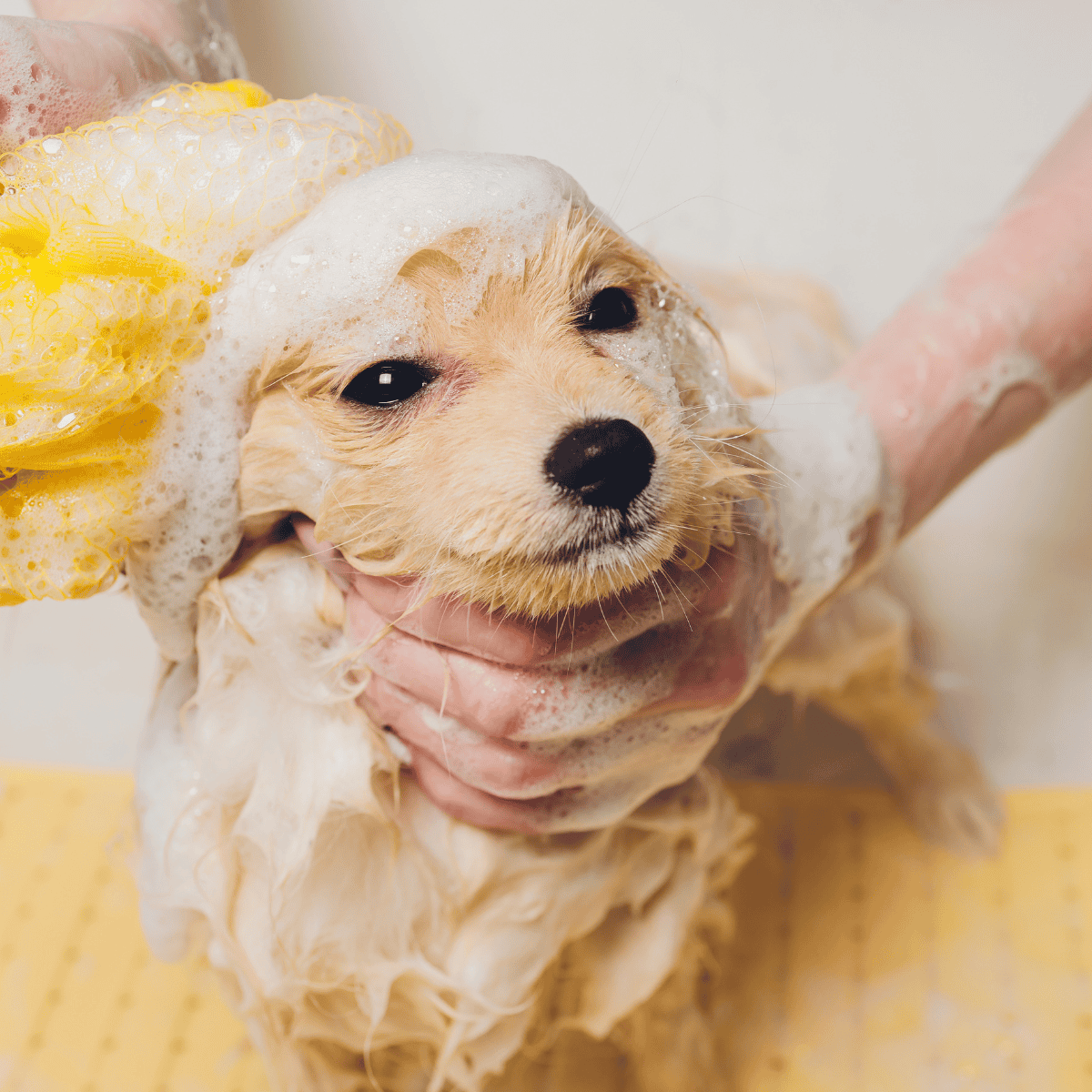
Avoid products with heavy fragrances; these might irritate your dog’s skin. Consider checking with a vet before trying new products to ensure they suit your dog’s specific needs.
Avoid human shampoos because they can upset a dog’s skin balance. Conditioners that moisturize the coat might also help keep your dog smelling nicer for longer periods.
Bathing Techniques
Before bathing, brush the dog’s fur to remove loose hair and dirt. Use lukewarm water to wet the coat completely. Start from the neck and work downwards to avoid getting water in their ears.

Apply shampoo, lather well, and rinse thoroughly to remove all soap residue, which can cause itching. Be careful around the face and protect their eyes and ears by using a damp cloth instead of direct water.
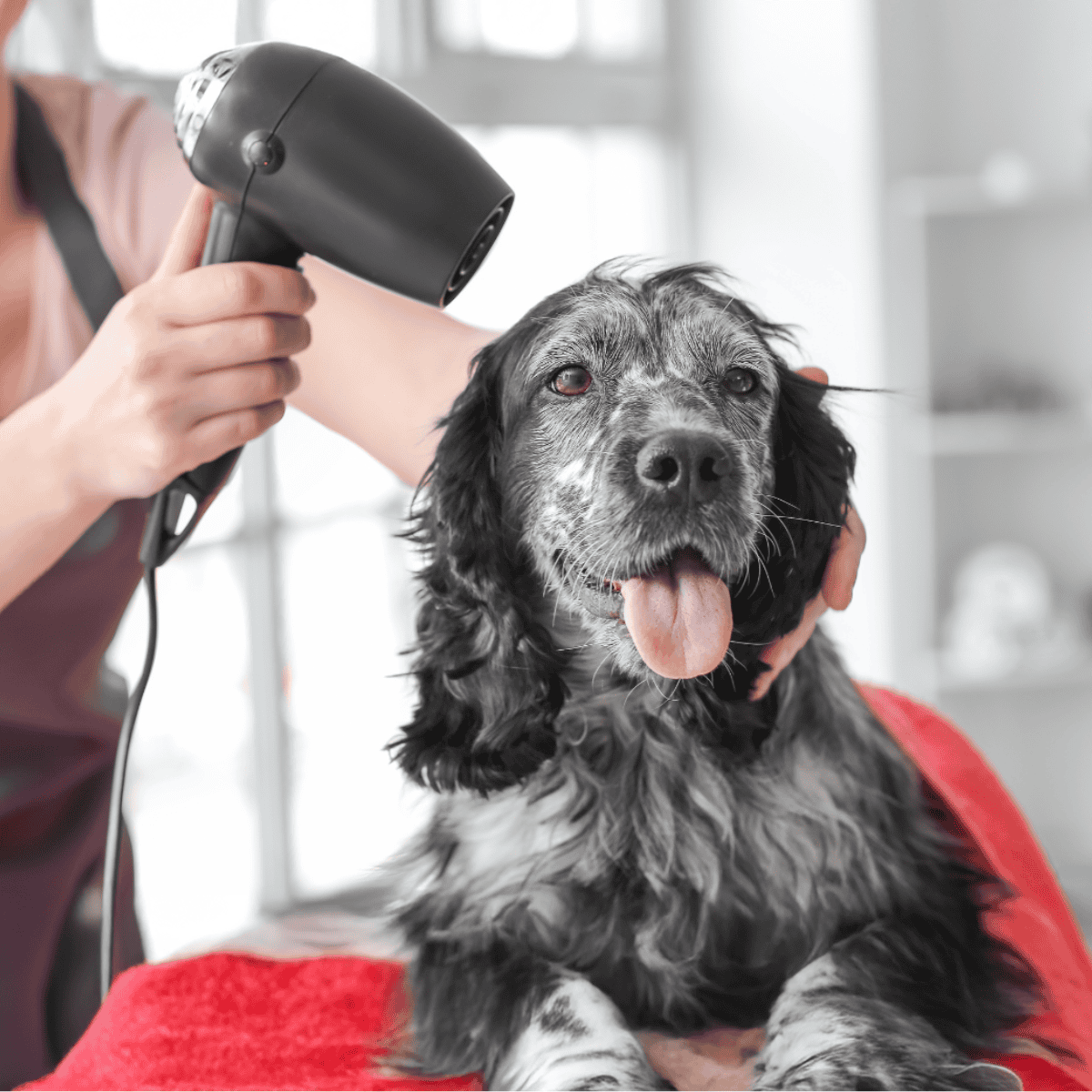
Consider drying the dog with a towel, then follow up with a gentle dog-friendly blow dryer on low heat. Proper drying is important to stop moisture from causing irritation. Regular nail clipping and ear cleaning can also reduce sources of odor.
Anal Gland Expression
Canine anal glands play a key role in communication. These small sacs can become full, leading to discomfort and a fishy smell. Understanding when and how these glands should be expressed can help maintain a dog’s health.
When It’s Necessary
Dogs have small glands located near the rectum. These glands release a distinctive scent used for marking territory or communication. When functioning properly, they are expressed naturally during defecation. Signs that the glands need to be expressed include scooting on the ground, licking the anal area, and a strong fishy odor.
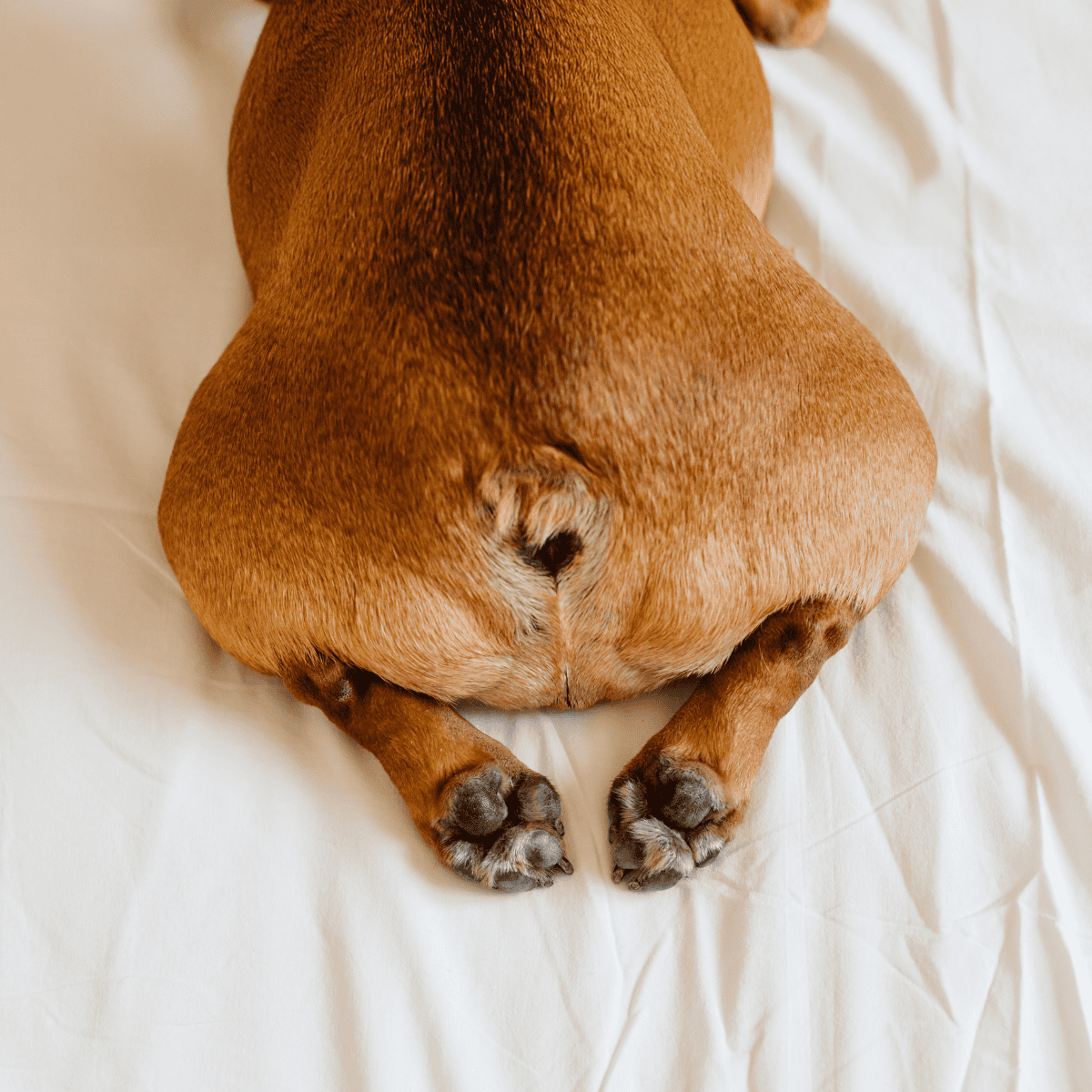
If left unchecked, full glands can lead to infection or discomfort. It’s important to address these symptoms promptly to avoid complications.
How It’s Done
Expressing anal glands can be done manually at home, but it’s important to be gentle and cautious. Locate the glands—they are positioned at 4 and 8 o’clock relative to the anus and apply gentle pressure with a paper towel to protect yourself from any discharge.
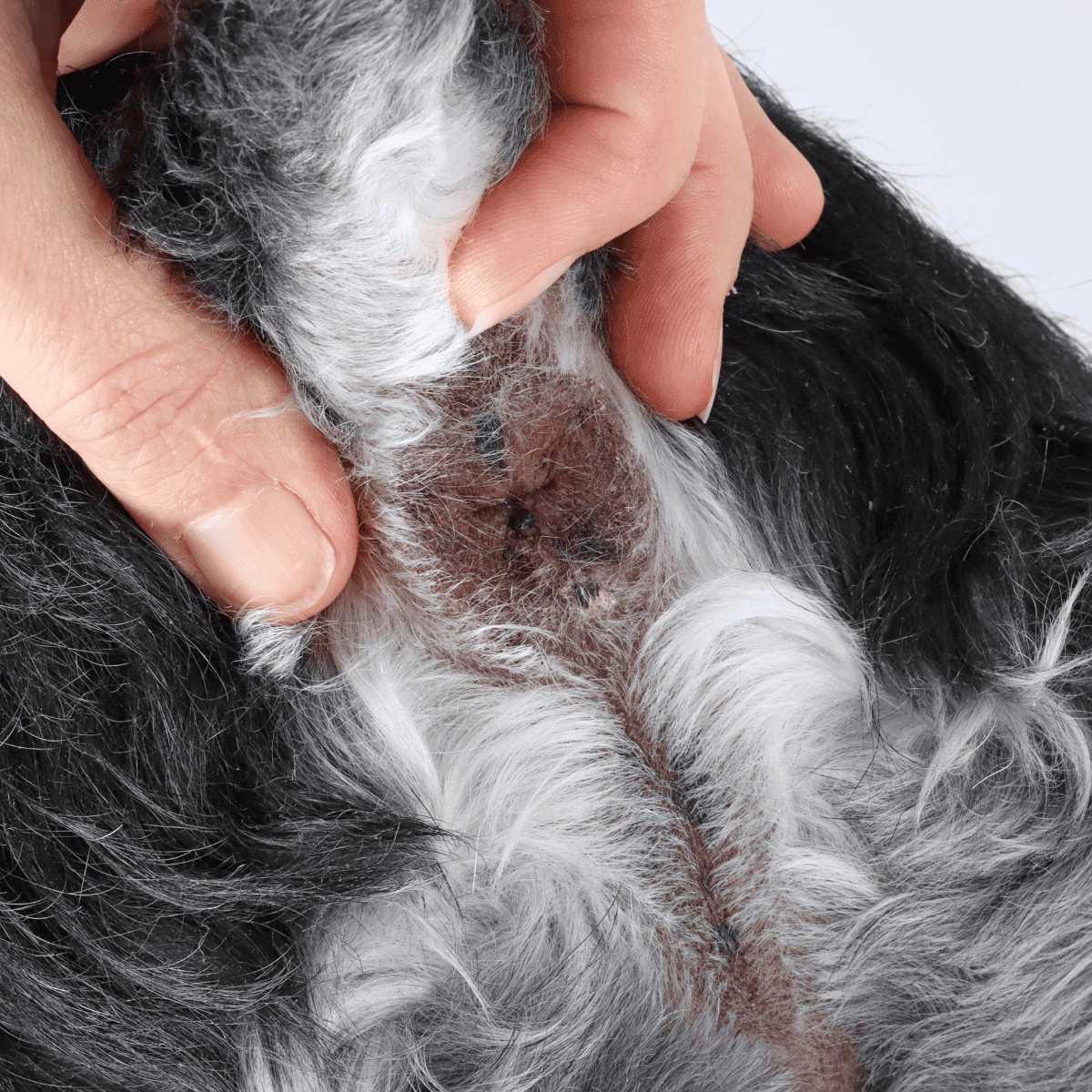
Proper technique ensures the dog’s comfort and reduces stress. For those uneasy with the process, consulting a professional is advisable.
Dietary Adjustments
Making changes to a dog’s diet can sometimes help reduce any fishy odors. Certain foods might be contributing to the smell, while others can support a dog’s digestive system and overall health.
Foods to Avoid
It’s important to know which foods might be causing problems. Fish-based diets or treats that contain fish oil could be the culprit. If these are a part of the dog’s diet, consider reducing them.
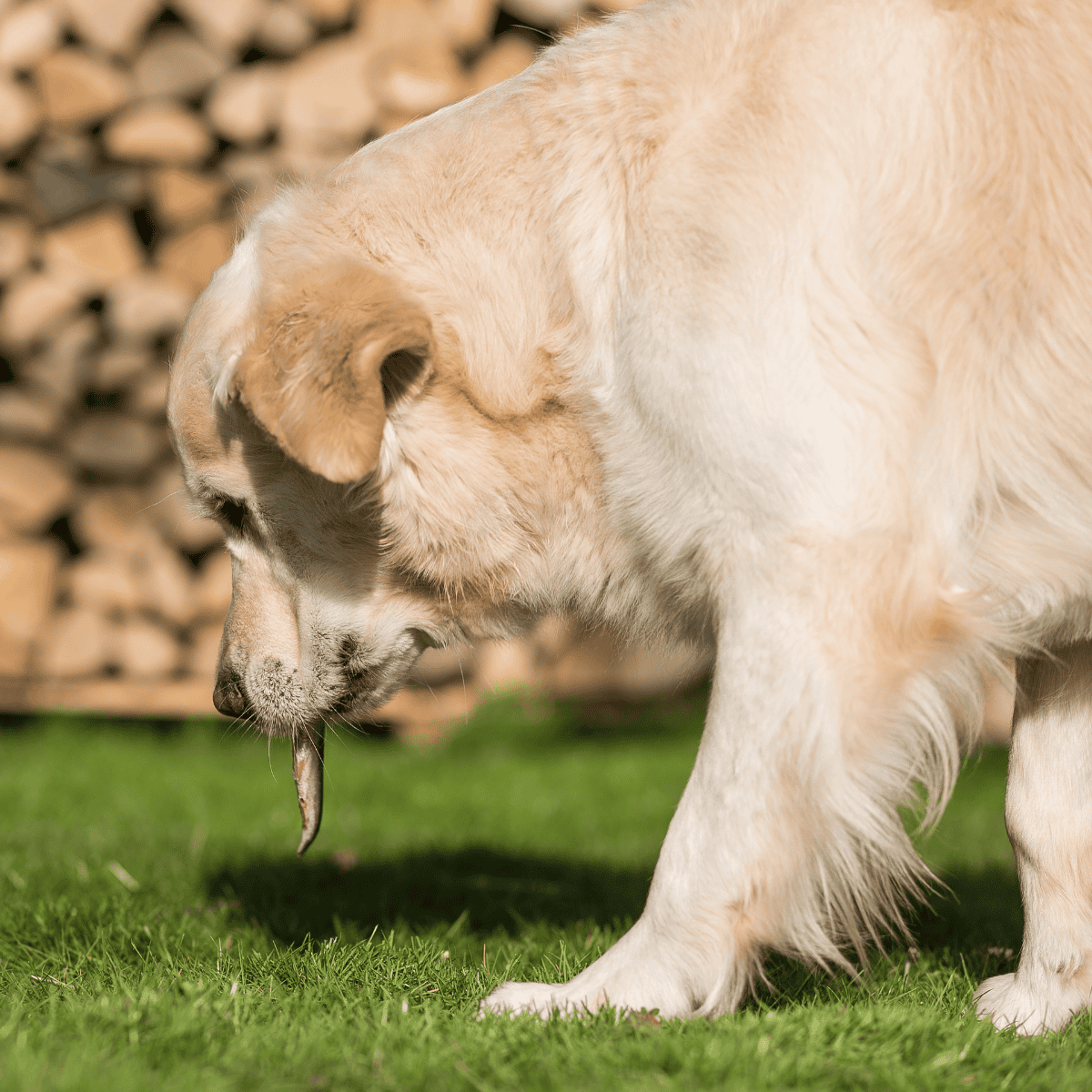
Dairy products can sometimes cause digestive issues, leading to unpleasant smells. It’s a good idea to cut these out if a dog seems sensitive to them. High-fat foods should also be limited, as they can upset the stomach and lead to odors. Checking the ingredients list for sources of fats is key.
Beneficial Foods
Incorporating certain foods may improve digestion and reduce odors. A diet rich in fiber can help maintain a healthy digestive system. Foods like sweet potatoes and pumpkin are good sources.
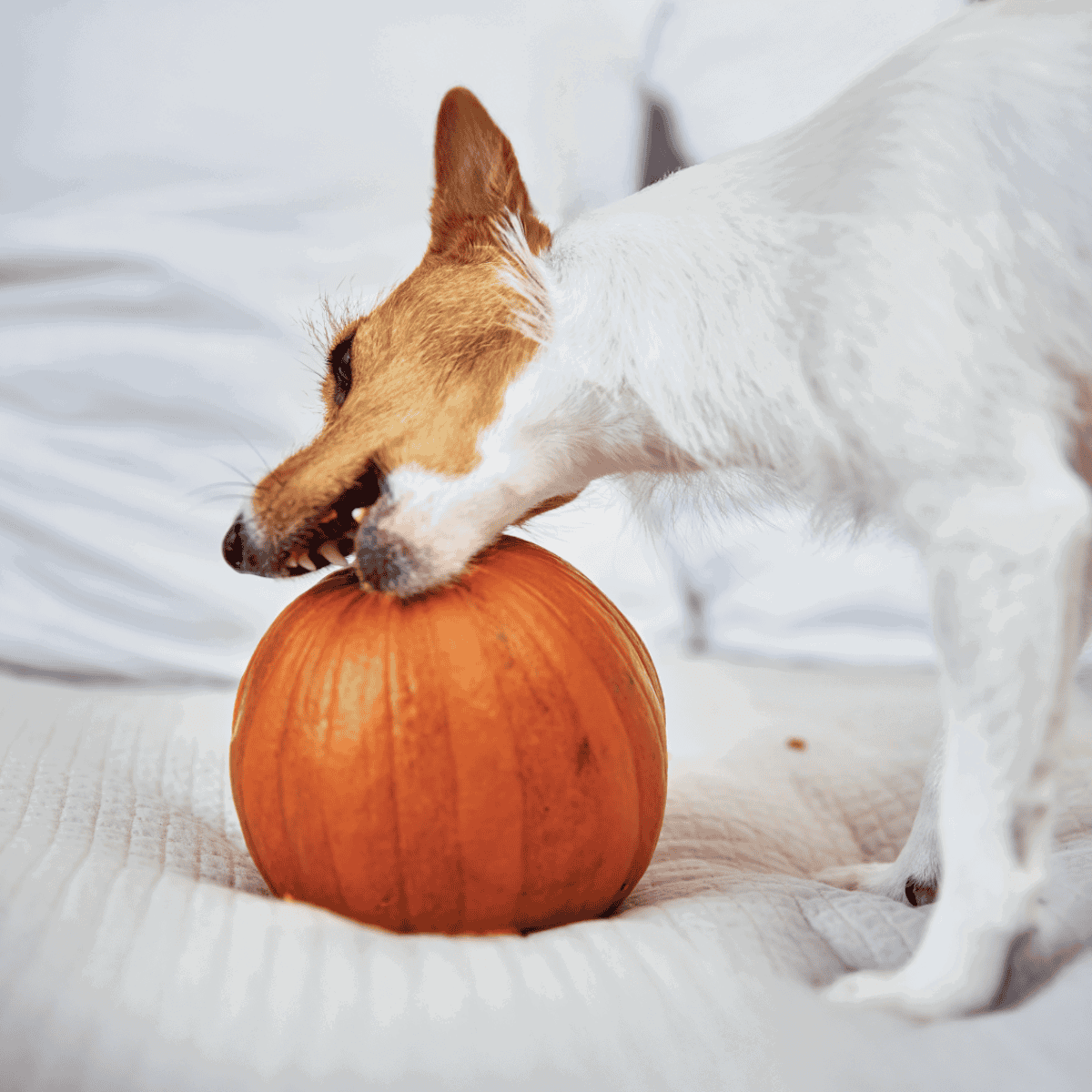
Consider adding probiotics to the dog’s diet. Probiotics can aid digestion and keep gut bacteria balanced, reducing odor.
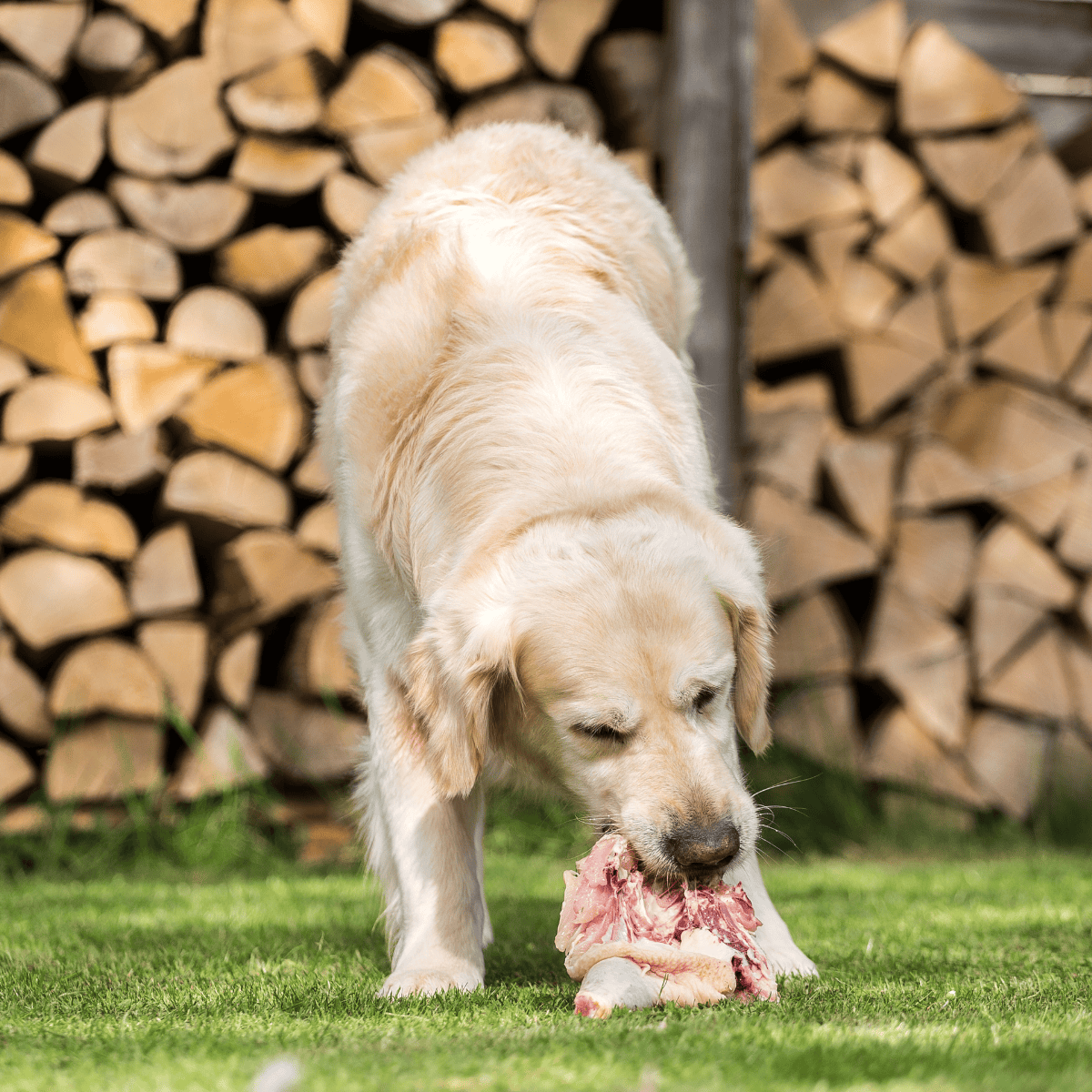
Lean proteins such as chicken or turkey are also beneficial. These proteins are gentle on the stomach and less likely to cause bad smells. Always consult with a veterinarian before making significant dietary changes.
Identifying Serious Symptoms
Dogs with a fishy smell may have underlying health issues. It’s important to recognize when this scent is a sign of something serious, like infections or digestive problems.
When to See a Vet
If a dog starts smelling like fish suddenly, it’s wise to look for other signs of illness. Persistent itching, licking their rear, or any visible rash needs attention. Other symptoms include swollen glands, redness around the anus, or discomfort during bowel movements.
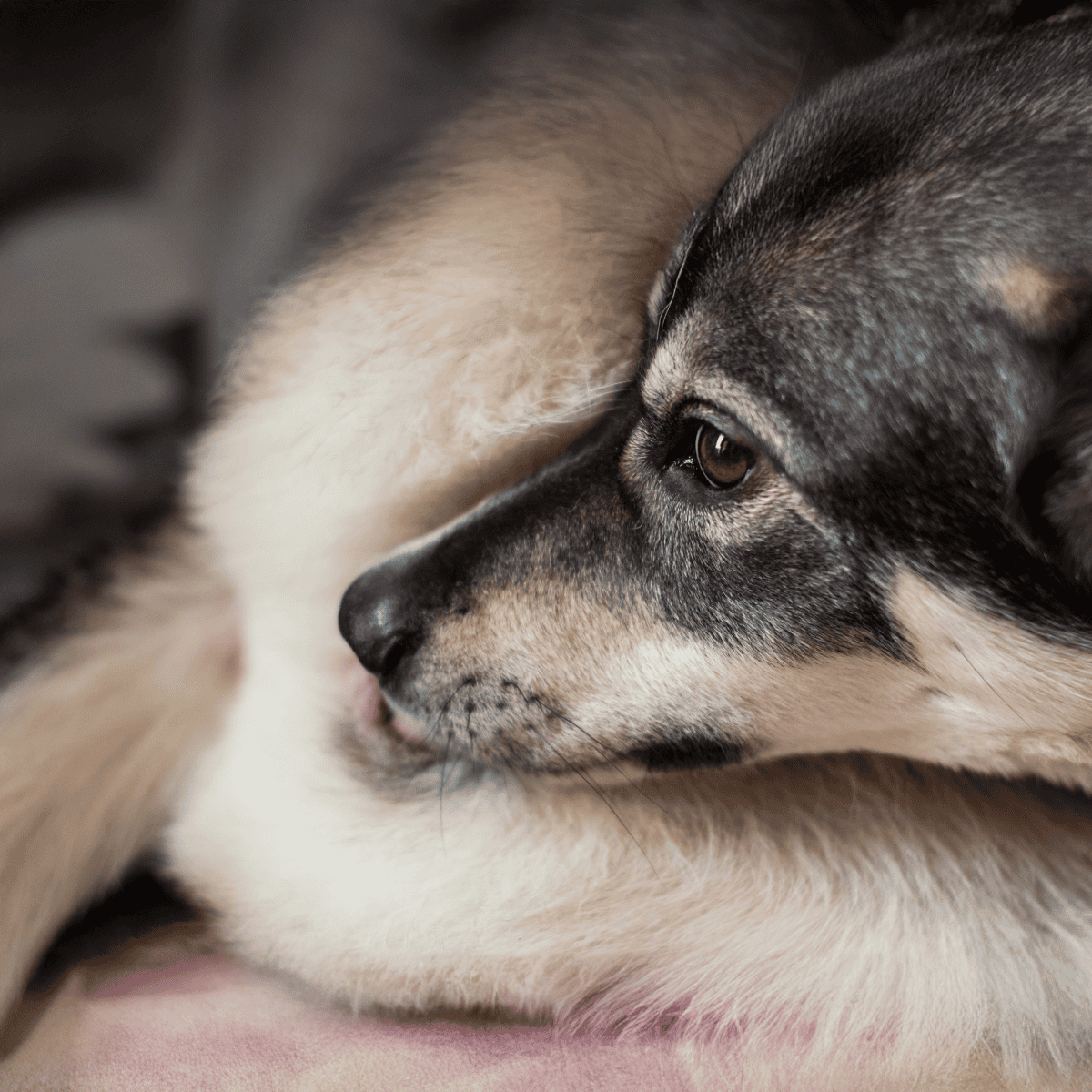
These signs might indicate anal gland problems or infections. If the dog shows signs of pain, starts eating less, or becomes lethargic, a vet should be consulted. Early vet visits can help diagnose and treat potential health issues before they get worse.
Recognizing Complications
Sometimes, a fishy smell might be linked to more serious health problems. Anal gland issues can lead to infections, which may require treatment like drainage or antibiotics. If glands rupture, they need immediate care.
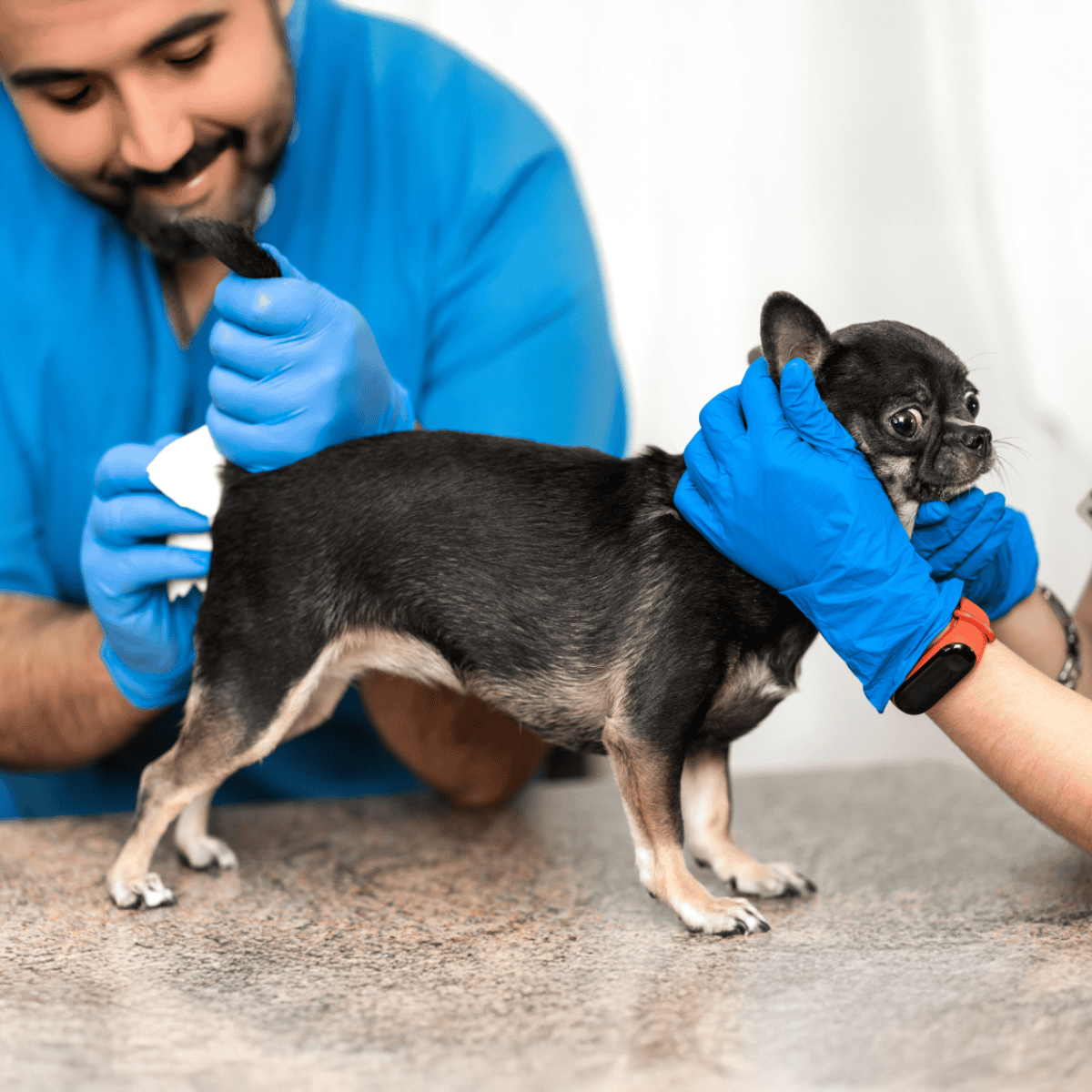
Other complications include intestinal problems or allergies. Chronic issues can lead to recurring infections that affect the dog’s quality of life. Also, diseases like kidney issues might mask themselves with unusual smells. Regular vet check-ups can catch these complications early, ensuring the dog stays healthy.
Professional Care and Advice
When dogs smell like fish, turning to experts can be crucial. This might involve visiting a vet for medical insights or consulting a groomer for hygienic solutions.
Veterinary Services
Veterinarians offer valuable help when a dog has a fishy smell. They can check for medical issues like anal gland problems, which might need treatment. It’s important to consult a vet if the smell is strong or gets worse. A vet can also run tests to rule out infections or other health problems.
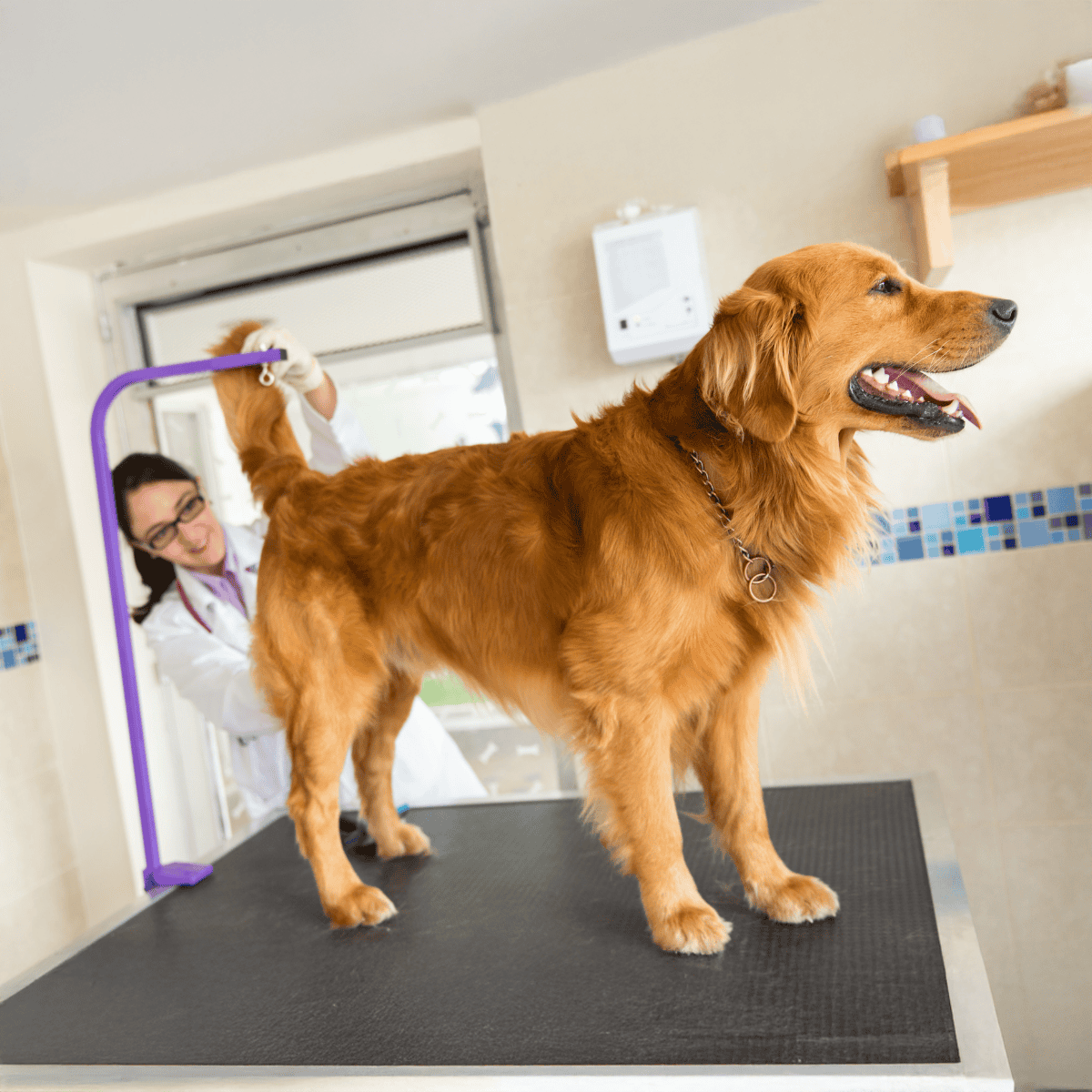
Regular check-ups are recommended, especially if this smell issue is new or recurring. Keeping a detailed history of the dog’s health and any changes will aid the vet. Always pay attention to any other unusual symptoms.
Expert Groomers
Professional groomers provide knowledge about maintaining a dog’s hygiene to combat unwanted odors. They can give a deep clean that might not be possible at home. Using the right products and techniques is key and groomers know which are effective.
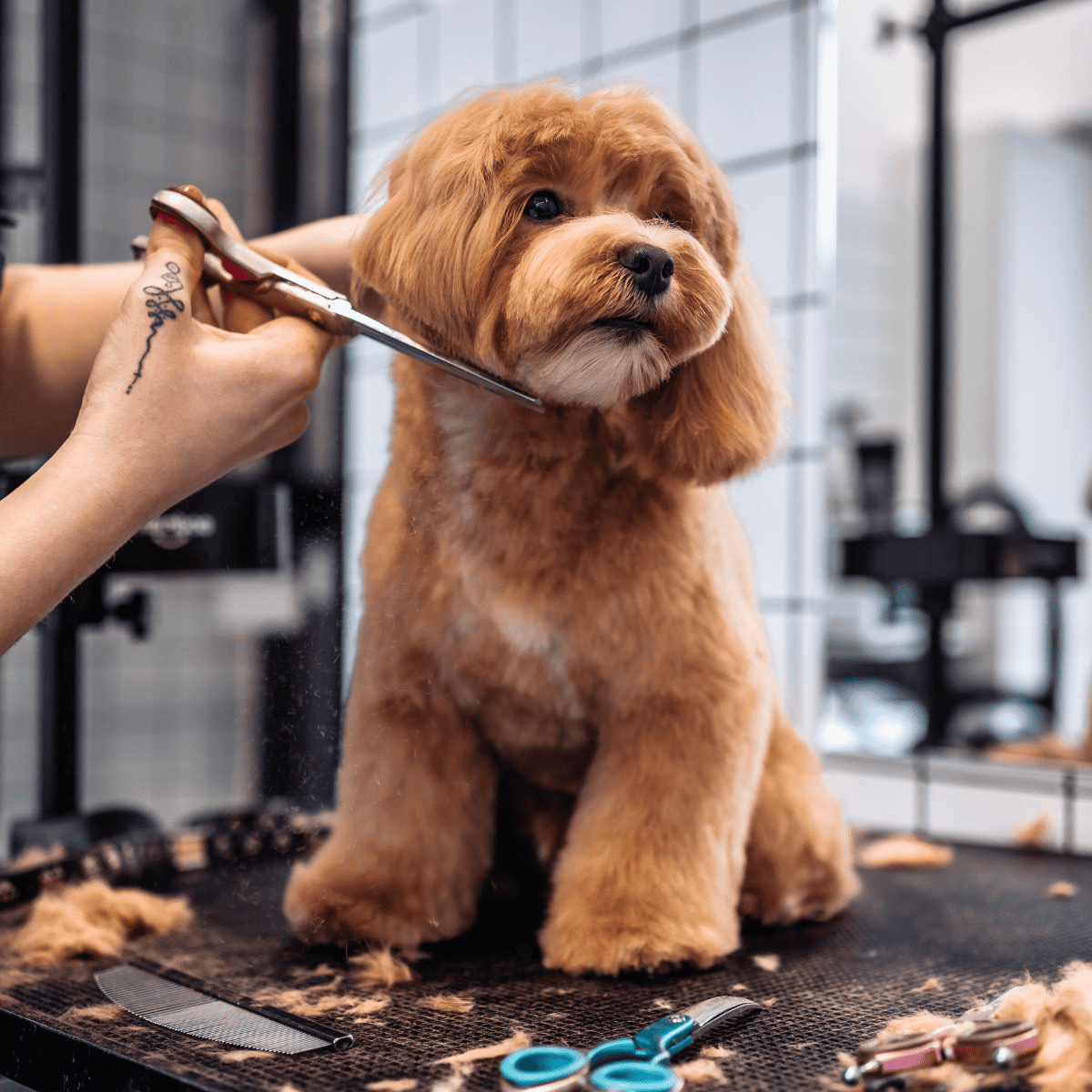
Scheduling regular grooming appointments helps keep the dog’s coat clean and odor-free. Groomers can also teach pet owners how to care for their dogs between visits. This extra guidance ensures the dog stays fresh and healthy.
Home Remedies
If your dog smells like fish, there are a few home solutions that might help. Using natural ingredients and simple grooming techniques can reduce the odor.
Natural Solutions
Natural remedies can be effective in addressing fishy odors. Apple cider vinegar is often used. Mix equal parts with water, and use it as a rinse after a bath. The vinegar’s properties can help neutralize odors. Coconut oil is another option. Apply a small amount to their coat. Its antibacterial effects might reduce smells.

Adding probiotics to their diet is beneficial. It supports digestive health, which can impact body odor. Always ensure these solutions are safe for your pet. Testing on a small area before full application is wise.
DIY Grooming Tips
Regular grooming is essential in managing bad odors. Brushing your dog’s coat daily helps remove dirt and debris. It can reduce odor and promote a healthy coat. Bathing with a gentle dog-specific shampoo is necessary. Avoid human shampoos as they might irritate their skin. Pay extra attention to their anal glands. These glands can cause fishy smells when not expressed properly. If unsure about expressing them at home, consult a vet.
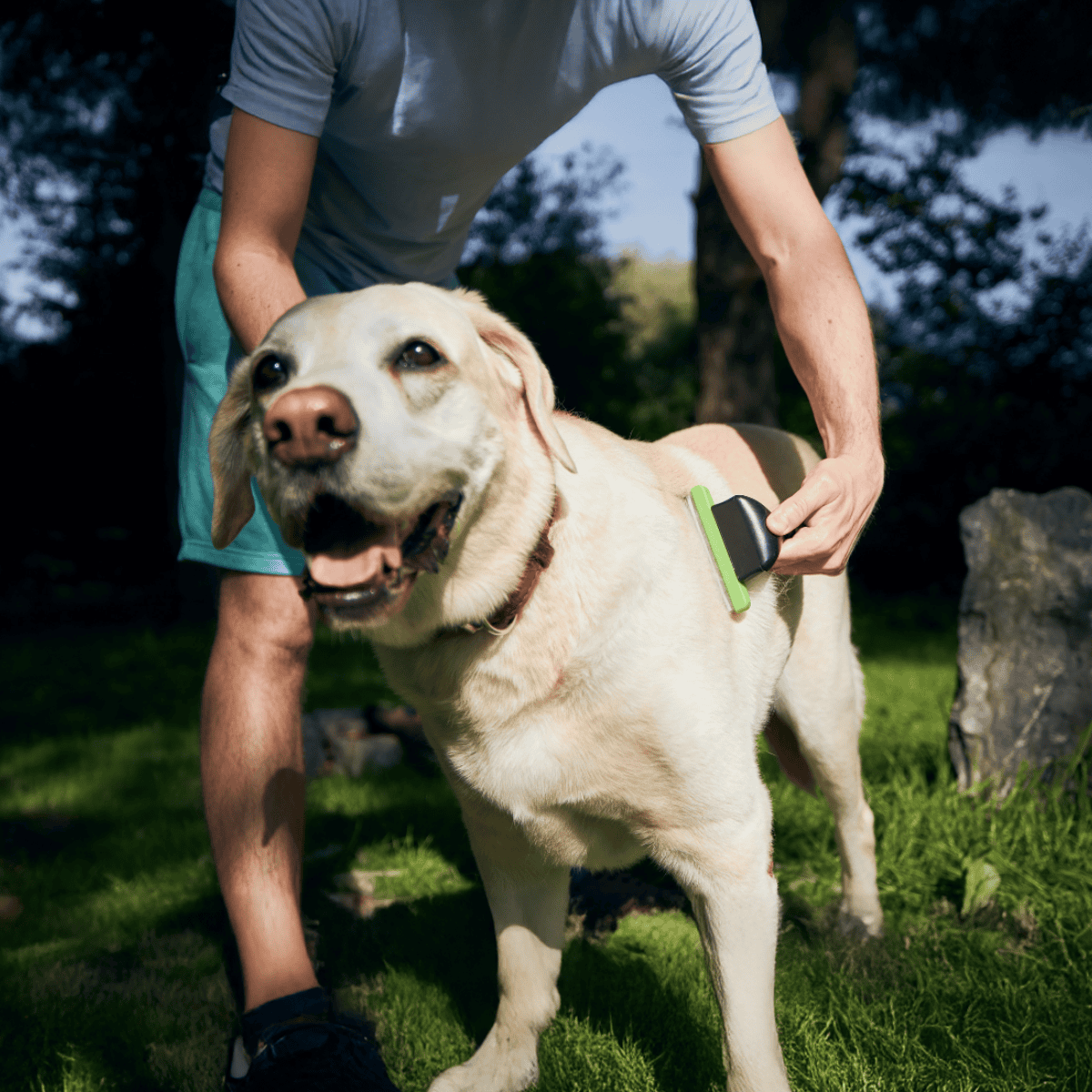
Trim fur around the anal area if applicable, as this area can retain odors. Frequent washing of bedding is essential to prevent smells from lingering in your home. These steps can help maintain your dog’s freshness.
